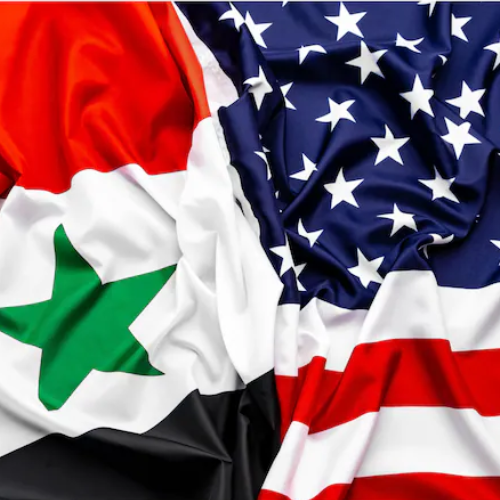The United States has taken a cautious step toward helping the new rebel-led government in Syria. After more than a decade of civil war, the U.S. Treasury Department announced on Monday, January 6, that certain restrictions on aid to Syria would be lifted. These changes allow electricity, oil, and gas to flow into Syria for the next six months.
While this decision marks a shift in U.S. policy, it doesn’t mean full support for the new government. The United States is still being careful because of concerns about the group now in charge, Hayat Tahrir al-Sham (HTS). This Islamist rebel group led the effort to topple Syria’s former leader, President Bashar al-Assad, last month.
Sanctions Eased After Rebel Victory
Syria’s civil war lasted 13 years, leaving the country deeply divided and in ruins. The war finally ended last month when the rebel forces defeated Assad’s government. Since then, the U.S. has taken small but significant steps to adjust its policies toward Syria.
The waivers issued by the Treasury Department will allow the delivery of electricity, oil, and gas into the country, providing basic resources that Syria desperately needs. These waivers will last for six months and are designed to ease the suffering of ordinary Syrians, who have endured years of war, shortages, and instability.
Syria’s Interim Government Leader Seeks Legitimacy as U.S. Removes Bounty
However, the U.S. has made it clear that these changes are temporary and conditional. The waivers are not an open endorsement of the new Syrian government but a humanitarian gesture to support the people of Syria during a critical time.
Caution Toward HTS and Rebel Leaders
The group now leading Syria, HTS, has a troubling history that makes the U.S. hesitant to fully support them. HTS was once connected to Al-Qaeda, and the U.S. still classifies the group as a terrorist organization. For now, the United States has kept HTS on its official list of terrorist groups, despite its new role as Syria’s governing body.
The U.S. government is also keeping Syria on the state sponsors of terrorism list, meaning that the country will still face certain sanctions and restrictions. These labels are reminders of the serious concerns the U.S. has about the new government’s leadership and its past actions.
President Joe Biden addressed these concerns last month, shortly after the rebels claimed victory. He acknowledged that the fall of Assad marked a significant change for Syria but warned that many of the rebel groups, including HTS, have a history of terrorism and human rights violations.
President Biden said on December 8, “We have noted the recent statements from the leaders of these rebel groups. They are saying the right things now, but as they take on greater responsibility, we will evaluate their actions, not just their words.”
Weapons Chaos Ends: Syria’s New Leader Vows State Control
In a move that surprised many, the U.S. recently removed a $10 million bounty on the leader of HTS. The bounty had been issued because of the group’s ties to Al-Qaeda during its early years. This decision is seen as part of the U.S. effort to adjust its stance toward HTS as it takes on a new governing role in Syria.
Concerns Over Rights and Promises
The United States is not ignoring the promises made by the new Syrian government. HTS leaders have pledged to protect the rights of women and ethnic minorities in the country. These promises are seen as a positive step, but there is widespread skepticism about whether they will be kept.
The U.S. is carefully watching how the new government handles its responsibilities. While statements from HTS leaders have been more moderate in recent weeks, their actions in the coming months will likely determine how much support they receive from the international community.
For now, the U.S. is trying to balance its humanitarian concerns with its national security priorities. By easing some restrictions, the U.S. hopes to provide relief for the Syrian people without fully endorsing or legitimizing the new government.
This cautious approach reflects the delicate and uncertain situation in Syria, where years of conflict have left deep scars. While the rebel victory has brought an end to the war, rebuilding the country and earning international trust will take far more than words from its new leaders.


